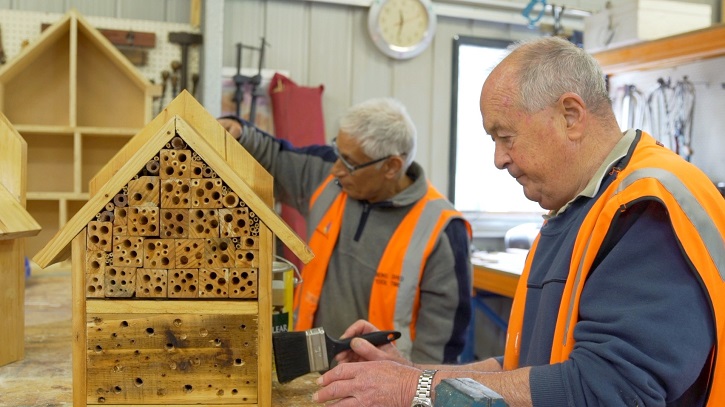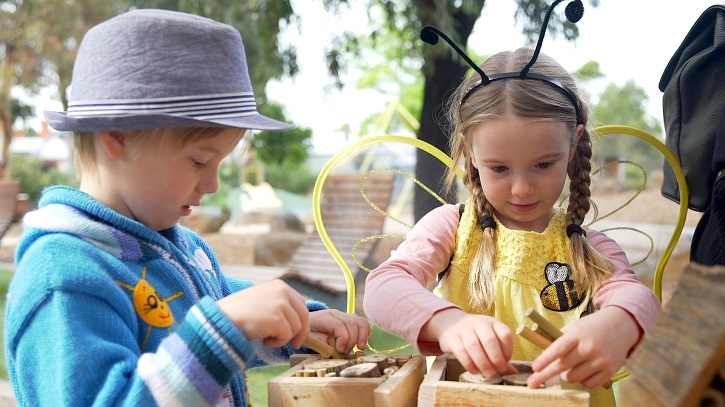Rooftop beehives in Victoria - Moonee Valley City Council
Moonee Valley City Council is working to make Victoria a bee-friendly state, completely changing its approach to bee management. As the first local government in Victoria to host beehives on their roofs, they are focused on conservation and sustainable relocation wherever possible.

Did you know that bees are responsible for pollinating a third of our food supply? This means that they are essential to our way of life. With the bee population in decline around the world, one Council is working to protect our bees through their ground-breaking Moonee Valley Bees program.
The beehives, built by the Aberfeldie Men’s Shed, have been installed on the roof of the Kellaway Avenue Neighbourhood Centre and at the Incinerator Gallery. The bees pollinate flowers in nearby parks and produce delicious honey, which was a sell-out at the recent Moonee Valley Festival. They are housed using innovative Flow Hive technology, which allows the honey to be harvested with minimal disturbance to the bees, just by turning on a tap. Council hopes to expand the program to other buildings in the future.
For more information on this project:
Moonee Valley City Council
E: council@mvcc.vic.gov.au
P: (03) 9243 8888
The project has been embraced by the community with Men’s Shed volunteers supplying the materials for hundreds of children to make their own native bee hotels to help boost the population in their backyards, and learn about bee conservation.
“The decline of bees is a global problem and we have an obligation to keep our bee population strong. We are confident that other councils will be open to adopting this proactive approach and have already seen support from Mornington Peninsula Shire Councillors as well as Marlene Kairouz, Minister for Local Government, who recently visited our hives,” said Moonee Valley Mayor, Cr John Sipek.
Bees are responsible for 65 percent of the fruits and vegetables at the supermarket. Australia is the last remaining continent on which bees have resisted contracting varroa mites or colony collapse disorder and we must support native and honey bees to keep our agriculture strong. The program has been widely embraced by the local community and beekeeping experts.

If residents find beehives on their property, Council encourages them to contact a local apiarist for its safe removal, rather than calling the exterminator. If residents find beehives or swarms on Council land, they can call Council to organise for the safe and sustainable rehoming of bees where possible.
For more about the project, watch the video.
